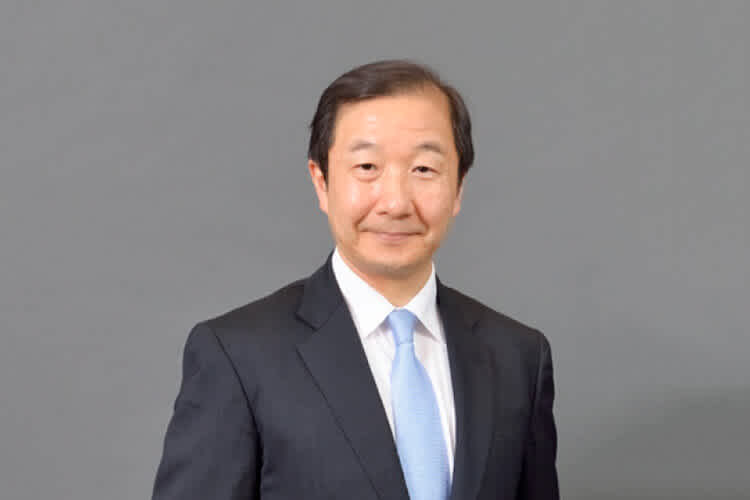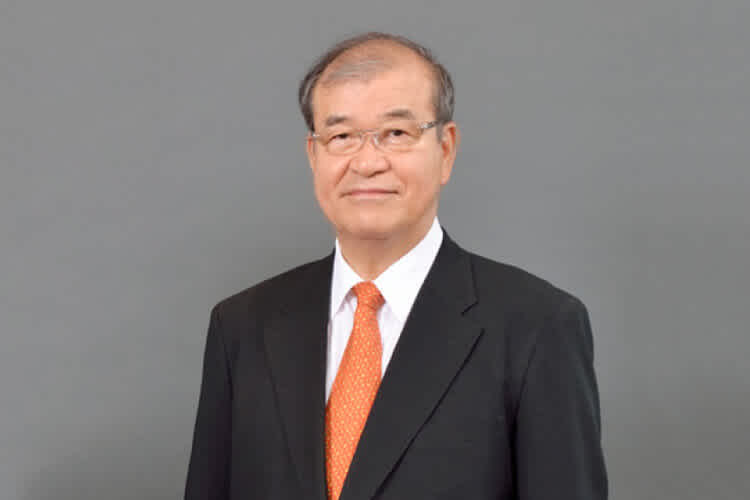Recruit's External Board Directors Shigeo Ohyagi and Yasushi Shingai talked about their opinions of Recruit Group's corporate governance and challenges for improving enterprise value.
Yasushi Shingai External Board Director
In 1980, Yasushi Shingai joined Japan Tobacco and Salt Public Corporation (now JT Inc.). After serving as Vice President of the Financial Planning Division and Chief Financial Officer he became Executive Deputy President and Representative Director in 2011 (his current position). He has been an External Board Director at Recruit Holdings Co., Ltd. since June 2014.

Shigeo Ohyagi External Board Director
Mr. Shigeo Ohyagi joined Teijin Limited in 1971. During his career at Teijin, he worked in the Pharmaceutical Business Unit, and as CEO, and Representative Director of the Board in 2008, and Chairman of the Board in 2014 (his current position). He has been an External Board Director of Recruit Holdings Co., Ltd. since June 2014.

Q. Recruit Group transitioned to a Strategic Business Unit (SBU) structure following a major reorganization after splitting it into different businesses in 2012. What is your opinion of the progress made so far?
Ohyagi: This project was proposed to the Board of Directors in the previous fiscal year. I learned that Recruit's Board Directors were truly thinking strategically about what shape Recruit Group's organization should take to adapt to changes around the world amid rapid advances in IT globally. The purpose for changing an organization is to maximize enterprise value, but, as a matter of course, it entails risk. Within this context, I was impressed by how quickly management moved to exhaustively examine detailed strategic scenarios at the Business Strategy Meeting. We External Board Director were able to participate in discussions because Board Directors explained how the reorganization would improve the overall efficiency of the Company and described how each SBU would fit into the holding company structure and the personnel assignments, cost issues, risks and responsibilities for each SBU.
In the manufacturing industry where I came from, companies tend to take their time implementing measures, so I had thought it would take several years for Recruit Group to finish such a major reorganization. I was very impressed how quickly Recruit Group made progress.
Shingai: I was also filled with admiration by how quickly the reorganization progressed. I could see that the Board Directors had a clear image of what is expected of each SBU within the larger picture of Recruit Holdings. By participating in discussions at the Board of Directors, we External Board Directors were able to also have a clearer image of that reorganization. At first, I was concerned that this transition to an SBU structure would be like gilding the lily. However, management proactively addressed the potential pitfalls of traditional organizational theory by specifically clarifying how to promote the delegation of authority and how to divide responsibilities among the holding company, each SBU and subsidiaries. The business domain of the Media & Solutions SBU is especially broader in scope than other SBUs, so its complexity and diversity are different. I understand that management debated extensively over the significance of combining all these operations into a single SBU. In the end, as a clear picture began to develop of each SBU, it became apparent how the SBUs will be able to develop business more broadly in ways that a single operating company cannot, and how these functional areas will have a positive financial impact. It is now possible to see where value is being created, a remarkable accomplishment in my opinion.
Ohyagi: During this transition, Recruit also continued improving its business portfolio through transfer of subsidiaries' shares and rebuilding its IT systems. I believe the ability to bring about a self-transformation on this scale is a unique trait of Recruit Group.
Q. What is your assessment of the PMI process after M&A deals are signed? Are there any issues?
Shingai: I have plenty of experience in PMI. I would say that Recruit Group places importance on the corporate cultures of acquired companies during the PMI process. What is corporate culture? It is a pattern of behavior that has developed over many years under the influence of various frameworks in a place where people gather. At Indeed, for example, sharp growth for so long from so soon after its founding led to the development of a certain culture. After acquiring Indeed, Recruit made a bold decision to leave it alone without trying to impose the company's own corporate culture. I believe this is remarkable. For PMI to be successful, it is important to decide before the acquisition on what to do with management after the acquisition. At the Global Online HR SBU, Recruit explains to acquisition candidates the advantages of Unit management system prior to the acquisition, getting them interested in trying out this style of management. In other words, Recruit focuses on inspiring the autonomy of acquired companies.
Meanwhile, it is essential to avoid risks that should not be taken in M&A. I believe Recruit was able to definitely control risks with help from outside experts. I have been particularly interested in the initiatives at the Media & Solutions SBU, which has been examining new strategies for businesses that use IT while advancing PMI at acquired overseas subsidiaries. More specifically, management laid out winning strategies before the acquisitions and has been flexibly revising those strategies in accordance with progress on PMI. This cannot be easily imitated by other ordinary companies. As External Board Directors, we might be forthright with our opinions, but the Board Directors take our opinions seriously and understand that taking some risks is necessary to generate future returns.
Ohyagi: There are numerous examples of failed PMI around the world. This is because there are compliance issues lurking under management's radar. Recruit Group will need to continue to refine its compliance initiatives and systems. As the holding company has delegated authority to each SBU, it is important to stay in control while maintaining overall harmony. I believe the Board Directors are already aware of this.
Shingai: Stories about companies faltering often begin on the far horizon where no one is looking. For global management to work well, it is important to increase transparency and share information about risks. It is the same with PMI. There are numerous case studies of other companies that encountered problems, and they are quite valuable lessons for us to learn to stay on constant alert.
Q. What is your opinion of initiatives underway to improve corporate governance?
Ohyagi: Recruit Holdings has adopted the "company with an Audit & Supervisory Board" form of corporate governance. Once decision- making authority is given to SBUs, the monitoring functions of the holding company become even more important. Accordingly, Recruit Holdings may change the design of its systems in the future.
Shingai: That's true. Strengthening the Group's governance and developing business quickly, however, do not always follow the same vector, and may veer off direction occasionally. This creates a healthy conflict, underscoring the need to increase transparency, especially for information about risks. People from the SBUs and those engaged in governance need to talk face to face and find common ground to accelerate business development. I think the Company have come up to a higher stage of mutual understanding last year through observing everyone's effort to reach agreements.
Ohyagi: Recruit Group is highly motivated in taking on new business challenges. It is our responsibility as External Board Directors to make sure no mistakes are made on the compliance front. To this end, we have augmented reporting functions and clearly stated our opinions. Looking back on the past year or two, Recruit has implemented the regular level of compliance measures. And from the current fiscal year, Recruit has added a foreign national to its roster of executive officers (Mark Schultz, Corporate Executive Officer in charge of Legal/Compliance/ Information Security). I believe the Company has struck an excellent balance between being on the offensive and the defensive, by aiming to hire professionals able to thrive on the global stage. We will do our utmost to support the long-term growth of Recruit Group.